Guatemala
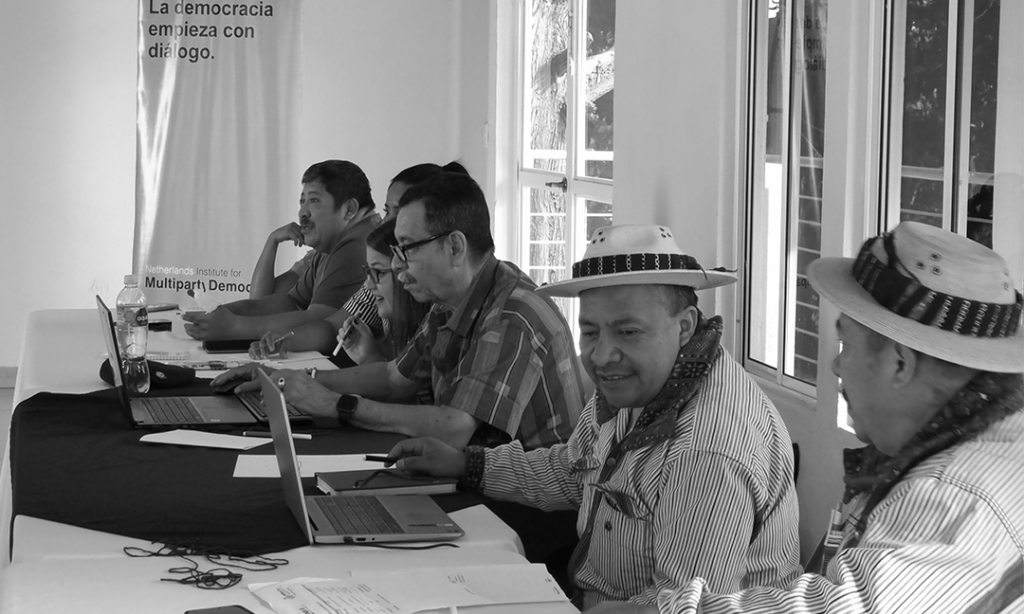
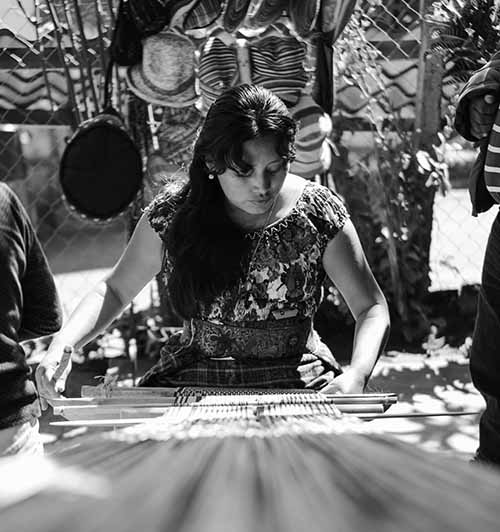
- NIMD in Guatemala: At a glance
- Notre action
- Comment nous procédons
- Rencontrer l'équipe
Objectif principal
Fostering an inclusive democracy that reflects the diversity and aspirations of all its citizens, including traditionally excluded groups.
Résultats
NIMD’s Jóvenes+D (Youth+Democracy) project aims to give Guatemala’s young people more power and voice, by integrating their perspectives into national and municipal decision-making. Input from the participants – including many young women and young indigenous people – has been directly adopted into Guatemala’s National Youth Policy and a number of Municipal Policies. Read more on p65.
In the lead-up to the 2023 general elections, we facilitated electoral dialogues where citizens developed joint agendas, outlining their needs and vision for democracy. These agendas were then presented to district deputies and municipal authorities, providing input into policy discussions and ensuring diverse voices were directly heard by the elected representative responsible for shaping the country’s future.
Our work to equip young people with skills to become political leaders is paying off. A number of alumni of the Multiparty Youth Diploma ran as candidates for Congress and local authorities in the 2023 elections. We hope they will leverage their cross-party networks and dialogue skills to foster collaboration across party lines and work towards the common good of all Guatemalans.
Guatemala: Political background
With Indigenous peoples making up over half its population, Guatemala is a country rich in cultural, ethnic and linguistic diversity.
Yet, the country’s political landscape has long been shaped by deep structural inequalities, with Indigenous communities, women and youth often excluded from meaningful participation in decision-making processes.
What’s more, like many of its Central American counterparts, Guatemala’s history of armed internal conflict, military dictatorships and authoritarian regimes has hindered the development of stable multiparty democracy, contributing to deep polarization in the political landscape.
Over the years, high levels of corruption, lack of transparency and limited accountability have also deeply damaged public trust in political institutions.
Despite these challenges, Guatemala is witnessing growing demand for more inclusive governance. In recent years, civil society has pushed for inclusive reforms to the legal system and electoral processes. And Guatemala’s 2019 general elections saw an increase in women and youth candidates, as well as a record number of Indigenous candidates elected to local governments.
While there is still a long road ahead, the rising demands for inclusiveness offers hope for a future with more equitable representation and governance for all Guatemalans.
Notre action
In this context, promoting the political representation of structurally excluded groups is a central theme that runs through all our work in Guatemala, from our dialogues to our schools.
We support the political participation of diverse groups – including women, youth and indigenous people – by recognizing and enhancing their existing skills in civic engagement and encouraging their involvement in shaping public policies.
By helping these groups fully engage in public life and working to dismantle the barriers that have historically excluded them, we hope Guatemala can move toward a more just and inclusive political system—one that reflects the needs and aspirations of all its citizens.
Fostering open dialogue is also essential to our work. Creating spaces where diverse voices can come together is key to rebuilding trust and strengthening democratic values. Through dialogue, we help bridge divides, foster cooperation, and give voice to those who have historically been left out of the political process.
Creating spaces where diverse voices can come together is essential for rebuilding trust and strengthening democratic values.
Ce que nous faisons : En chiffres
Comment nous procédons
Dialogue
NIMD has a legacy of dialogue work in Guatemala. In 2002, shortly after setting up our office, we launched a political party dialogue platform in partnership with the United Nations Development Programme. For the first time ever, this platform brought together all 20 political parties from across Guatemala’s polarized political landscape. Speaking with an equal voice, the parties reached a landmark agreement: a shared National Agenda – a development plan for the country after 50 years of armed conflict. With backing and commitment from across the political spectrum, this plan was an important step towards national reconciliation and long-term stability after decades of violence and division.
Today, we continue to set up and support inclusive dialogue among political parties, building trust, and fostering collaboration and commitment to the democratic process.
But our dialogues have also widened to include other key voices in democracy. These include civil society, political actors, think tanks and academic institutions. By helping to foster inclusive, open and constructive conversations about Guatemala’s challenges, we hope to promote trust and mutual understanding, ensuring that diverse voices are heard in decision making.
"For us, dialogue is essential for building trust, developing leadership, and promoting democratic values."
Les femmes en politique
At NIMD, we believe in the importance of political participation for women in all their diversity – from political leaders to public servants and university students. Across all our programmes, we have seen first-hand how the diverse perspectives women bring foster inclusive governance and social cohesion, ultimately reducing polarization.
That’s why we work directly with women from across the political spectrum. Through our dialogue and training workshops, we bring women leaders together across political divides to build networks and organize joint cross-party actions that advance gender equality.
We also address the barriers women face in politics by running advocacy campaigns and conducting research to raise awareness about combating political violence against women.
Lastly, we support civil society organizations in their work to promote women’s rights, indigenous rights and the political participation of women in Guatemala. We believe it is crucial these organizations have the tools, knowledge and resources to create lasting political change. By helping them develop effective strategies, we ensure their voices can shape future policies and drive meaningful progress.
"The diverse perspectives women bring foster inclusive governance and social cohesion. "
La jeunesse en politique
Through a series of interconnected strategies, NIMD Guatemala works to ensure that young people have a seat at the table and are able to meaningfully engage in decision-making processes.
First, our leadership training programmes and Democracy Schools help youth develop essential skills in civic engagement, advocacy and policy monitoring, preparing them to take an active role in public life and decision-making.
But political influence relies on more than just skills. We also strive to give young people the platform they need to drive change. For example, our intergenerational dialogues provide an important opportunity for young people to engage directly with political decision-makers, share their ideas and perspectives, and expand their network.
Additionally, NIMD supports youth involvement in shaping public policies. By creating spaces where young people can contribute to policy discussions, we ensure that their needs and perspectives are integrated into the policies that affect them.
"We provide young people with the platform to influence change."
Démocratie et éducation
NIMD Guatemala’s Democracy Schools bring people together to build skills, share knowledge, promote dialogue, exchange experience and inspire each other to continue to work for the betterment of the country.
Targeting political party members and civil society representatives, our schools equip participants with the tools they need to become responsive political leaders. The programme offers a comprehensive focus on human rights and democratic values, paired with practical political leadership skills, such as negotiation, profiling, dialogue and debating.
Given Guatemala’s rich diversity, we ensure that young people, women, indigenous people, and other structurally excluded groups are represented our Democracy Schools. We also recognize the unique challenges faced by participants who belong to more than one such group, due to the overlap of their multiple identities.
Underscoring our efforts towards inclusiveness, our Democracy Schools are held across the country – in both rural and urban areas – ensuring that people from all sectors of society have the opportunity to participate, enhance their skills and grow their networks.
Responsive politics
NIMD works with key institutions in Guatemala to promote more inclusive and responsive governance. Our primary objective is to enhance transparency, accountability and citizen engagement in political processes.
To improve transparency and strengthen internal structures, we collaborate with political parties. We help them develop long-term strategic plans. In simple terms, this means helping them analyze their strengths and weaknesses. Based on their findings, they can develop strategies to improve their performance, sustainability and interactions with society.
We also work to bridge the gap between citizens and political institutions by supporting the Supreme Electoral Tribunal, with measures to foster inclusive participation in elections and trust in the electoral process. This includes, for example, organizing electoral observation missions with structurally excluded groups, reinforcing the integrity and inclusiveness of elections.
In Congress, our goal is to ensure that legislation reflects the needs of the population. To achieve this, we work closely with deputies and advisors, providing support in drafting effective legislation. And we collaborate with committees to ensure civil society voices are represented in the legislative process.
This work is strengthened by our support to the Congressional Technical Committee, a body within the Congress that provides technical support and expertise to legislators. Our support has helped the committee advance reforms to improve transparency in decision-making, such as measures to prevent party-switching and reduce nepotism.
Rencontrer l'équipe
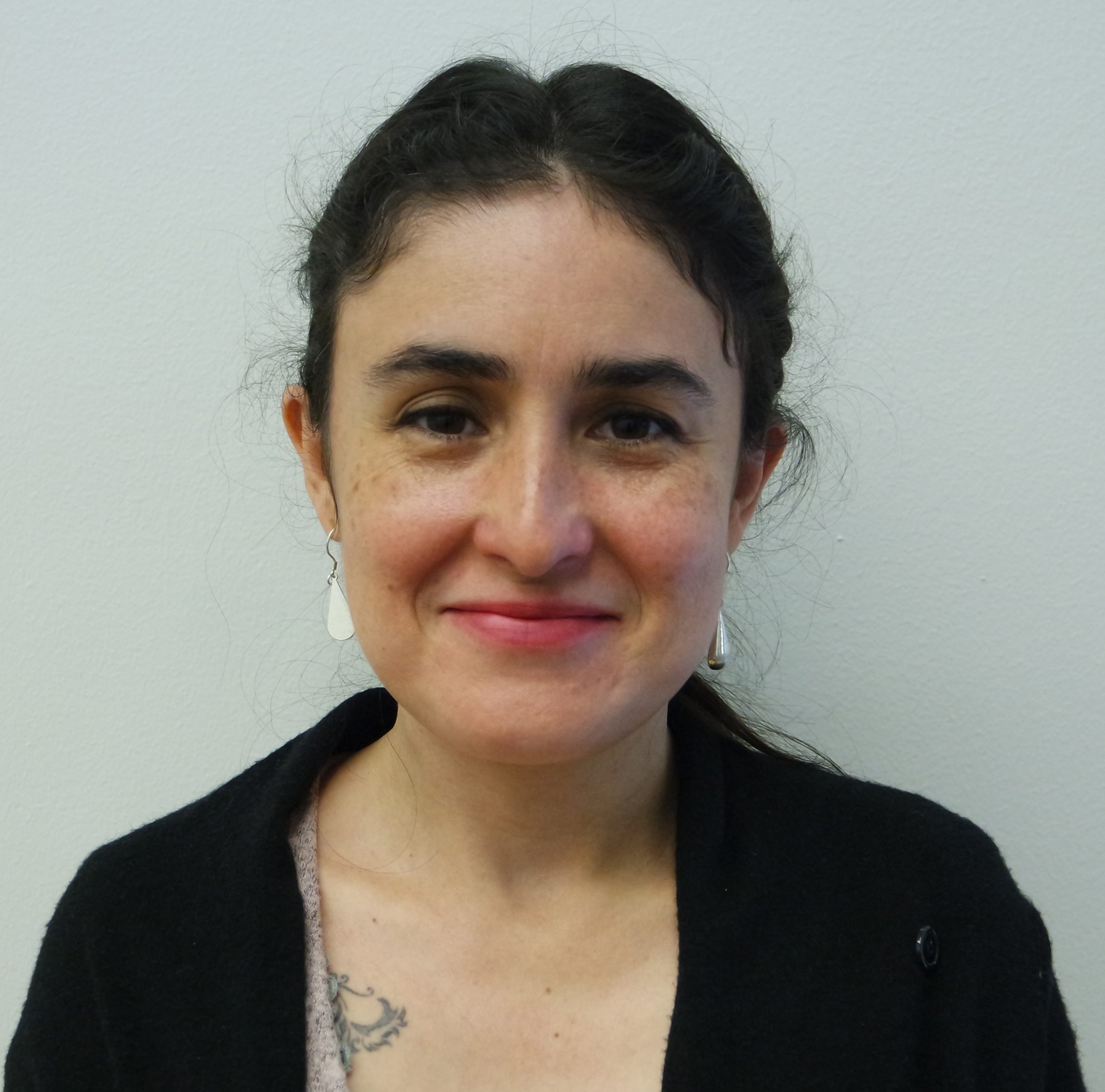 Anneliza Tobar
(Interim) Country Director, NIMD Guatemala
En savoir plus
Anneliza Tobar
(Interim) Country Director, NIMD Guatemala
En savoir plus
Anneliza Tobar is the (interim) Country Director for the NIMD office in Guatemala.
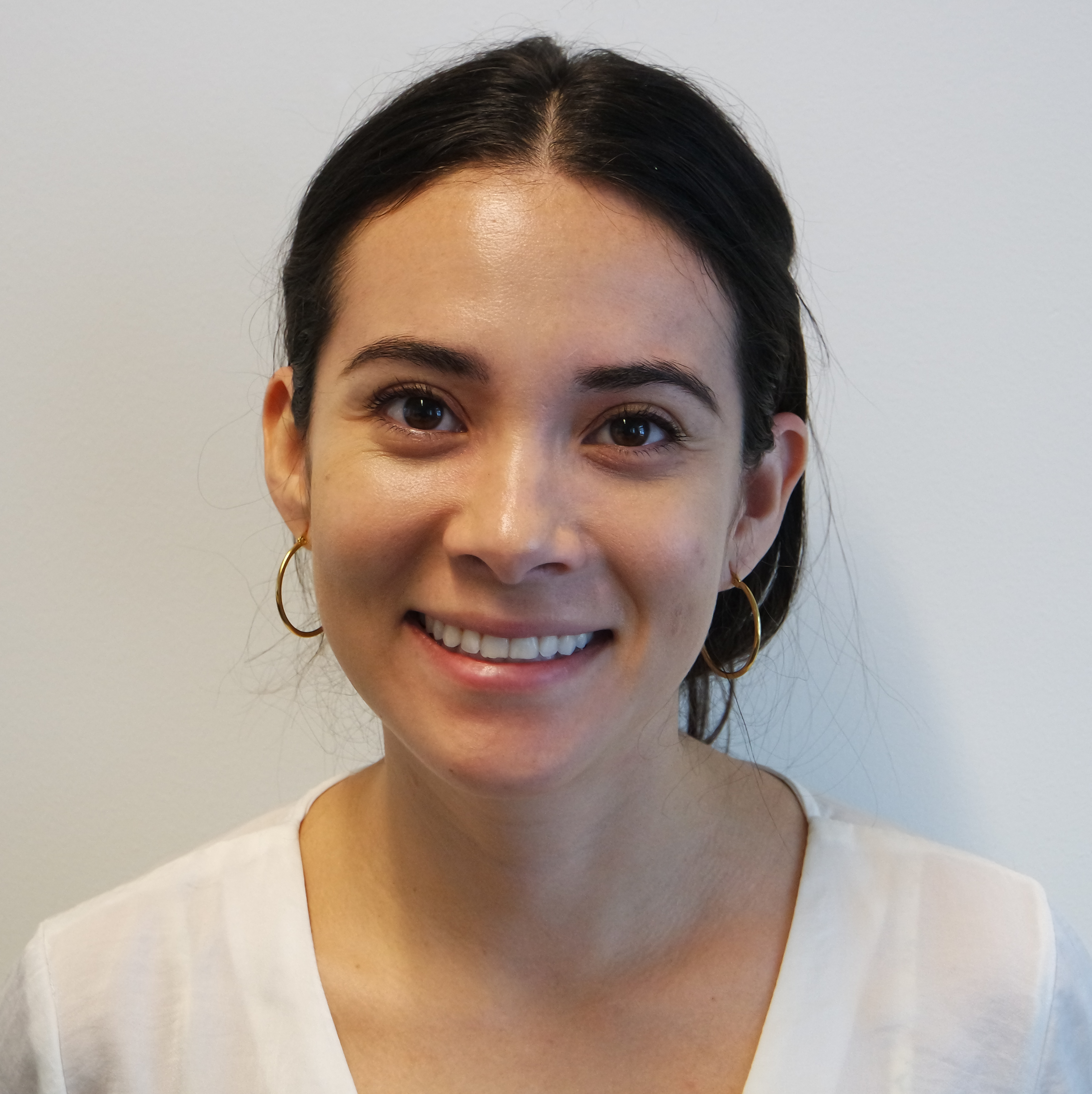 Daniela Montero
Conseiller en programmes et connaissances
En savoir plus
Daniela Montero
Conseiller en programmes et connaissances
En savoir plus
Daniela Montero is the focal point in The Hague working with the Guatemala team.

Anneliza Tobar is the (interim) Country Director for the NIMD office in Guatemala.

Daniela Montero is the focal point in The Hague working with the Guatemala team.
Avec qui nous travaillons
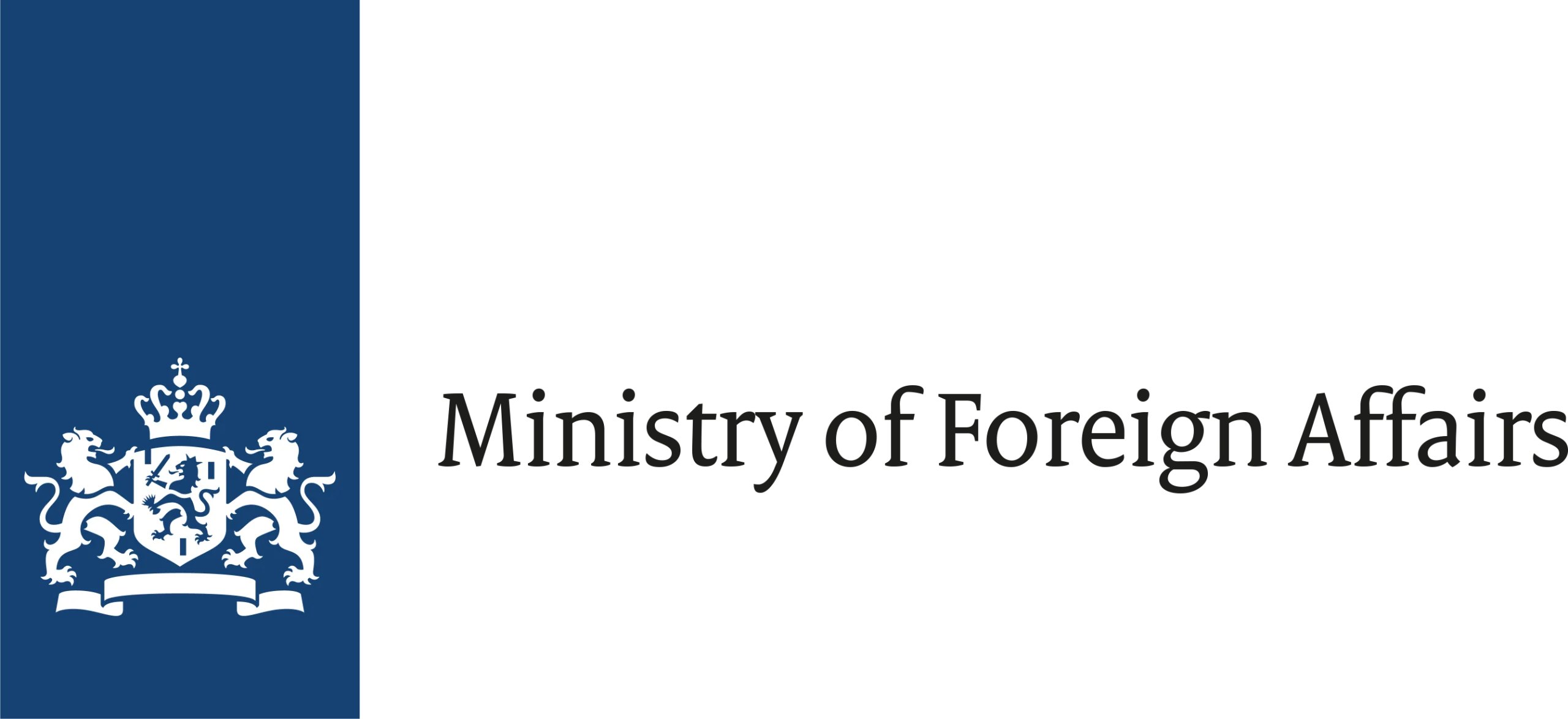
In partnership with the Netherlands Ministry of Foreign Affairs, our Youth Voices Matter project helps young people build leadership skills to protect human rights.
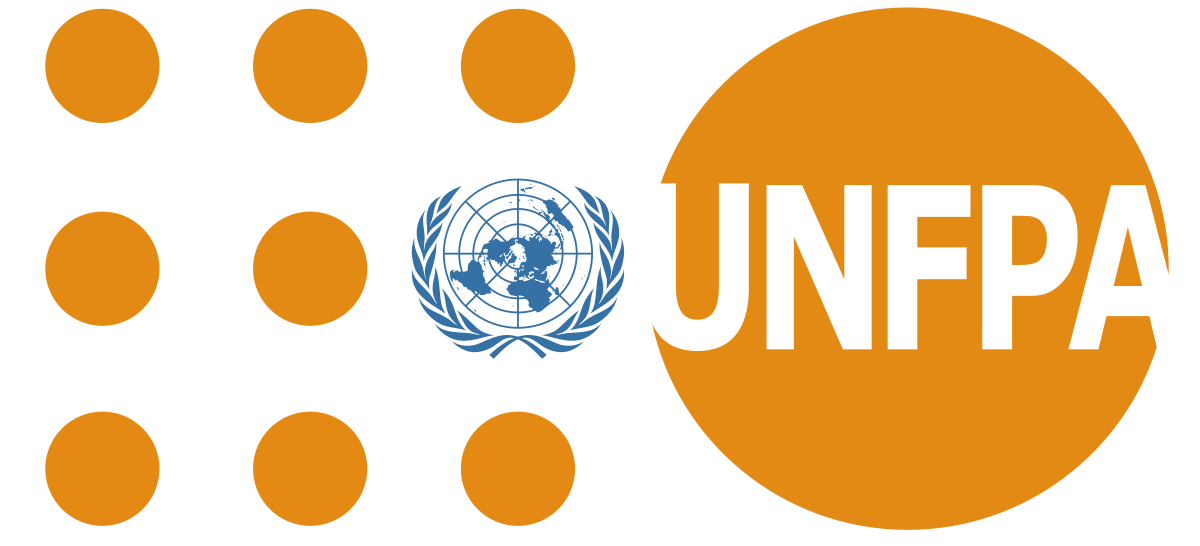
With support from UNFPA, we’re helping young people track the 2023 citizen agendas by creating plans to monitor and assess local initiatives.

Funded by the European Union, we help citizens—especially young people and women—gain skills to oversee community projects and hold institutions accountable. We’re also working with political institutions to ensure their planning takes gender equality and human rights into account.
 Facebook
Facebook LinkedIn
LinkedIn X
X